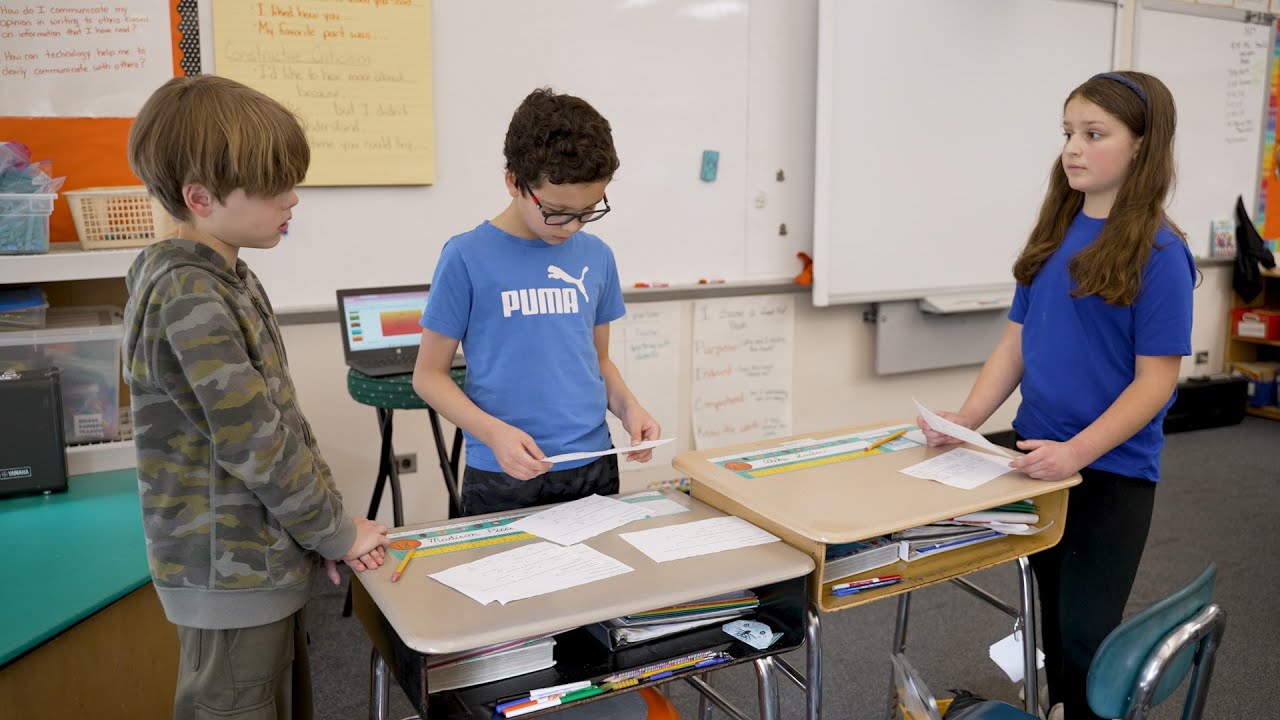Assessment
Look beyond high-stakes testing to learn about different ways of assessing the full range of student ability—social, emotional, and academic achievement.
Building Communication Skills With Peer Critique
When students use a rubric and sentence starters to provide feedback to their classmates, they help each other improve their work.A More Efficient and Productive Way to Conduct Math Assessments
Here’s how to assign graded work that more accurately assesses elementary students’ learning and saves time.Your content has been saved!
Go to My Saved Content.7 Smart, Fast Ways to Do Formative Assessment
Within these methods you’ll find close to 40 tools and tricks for finding out what your students know while they’re still learning.68kYour content has been saved!
Go to My Saved Content.The Case Against Zeros in Grading
Teachers can rethink their grading practices to make them more mathematically fair for students and allow for redemption for a missed assignment.33.9kYour content has been saved!
Go to My Saved Content.How ‘Would You Rather’ Questions Can Support Higher-Order Thinking
Teachers can move ‘Would You Rather’ questions beyond brain breaks, using them to boost engagement during all stages of instruction.28 Ways to Quickly Check for Understanding
From sketching comics to drafting tweets, these fun—and fast—ways to check for understanding are creative and flexible.The Case Against Grading Homework
When homework is meaningful and contributes to their learning, students are more likely to complete it.The 10 Most Significant Education Studies of 2020
We reviewed hundreds of educational studies in 2020 and then highlighted 10 of the most significant—covering topics from virtual learning to the reading wars and the decline of standardized tests.24.1kYour content has been saved!
Go to My Saved Content.A Late Work Policy That Works for Teachers and Students
Creating clear boundaries around when students can submit assignments after the due date can boost morale for everyone.8 Quick Checks for Understanding
Formative assessment is a proven technique for improving student learning, and the strategies shared here by Jay McTighe work both in the classroom and remotely.17.9kYour content has been saved!
Go to My Saved Content.Why the 100-Point Grading Scale Is a Stacked Deck
What to do about a 100-point grading system with a troubling history—and inherent flaws that carry over into the present day.7kYour content has been saved!
Go to My Saved Content.3 Ways Student Data Can Inform Your Teaching
Gather and use valuable student data to inform your classroom practice.31.2kYour content has been saved!
Go to My Saved Content.The Spatially Gifted—Our Future Architects and Engineers—Are Being Overlooked
Though they have the potential to excel in many fields, we’re neglecting a large body of students with a unique set of skills.15.3kYour content has been saved!
Go to My Saved Content.What Does the Research Say About Testing?
There’s too much testing in schools, most teachers agree, but well-designed classroom tests and quizzes can improve student recall and retention.18.7kYour content has been saved!
Go to My Saved Content.13 Formative Assessments That Inspire Creativity
Sometimes mixing in formative assessments that go a step beyond exit slips and low-stakes quizzes can inject some fun—and creativity—into learning.6.1kYour content has been saved!
Go to My Saved Content.














